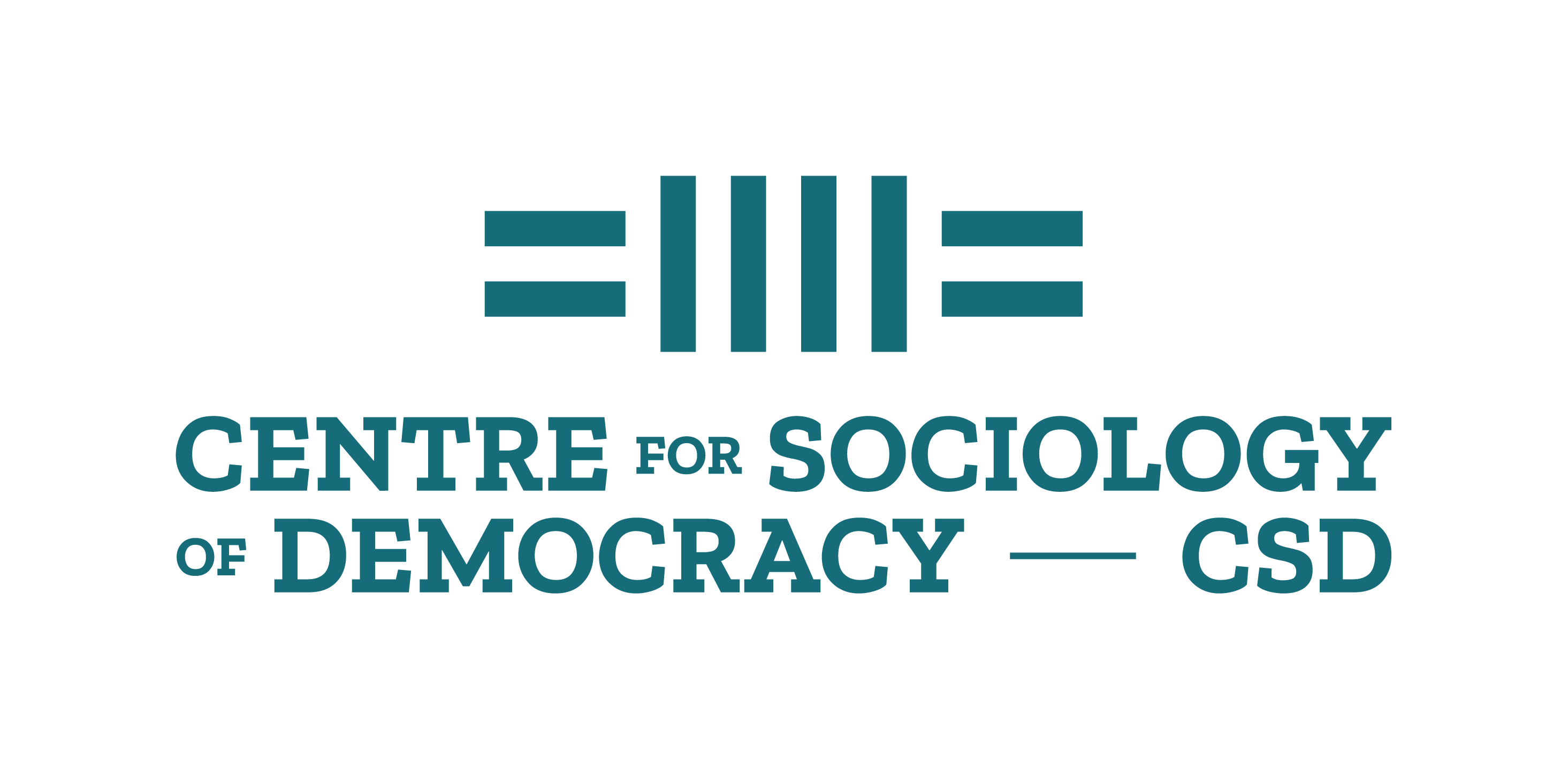
The Centre for Sociology of Democracy studies democracy in modern societies. Our projects deal with democracy from different perspectives and with different methods.
»
Recent News & Blog Posts
What are the next walls to fall in science and society? Led by this question, the brightest minds from the international scientific community submitted their groundbreaking projects for the prestigious Falling Walls Science Breakthrough of the Year 2022.
In their article, Luhtakallio and Meriluoto argue that two significant shifts, namely, the blurring of lives offline and online and the increasing significance of the visual character of these lives, pose new challenges to social science research methods.
Julkisuuteen noussut kohu on keskittynyt pääasiassa yhden suuren ketjuravintolan toimintakulttuuriin, mutta Lotta Junnilaisen ja Lotta Haikkolan haastatteluiden perusteella ongelmat eivät koske yksittäistä pikaruokaketjua, vaan ravintola-alaa laajemminkin.
Kahdeksan kuplan Suomi kuvaa talouden murrosten silmässä elävien ihmisten kokemuksia itsestään ja yhteiskunnasta: sitä, mitä he odottavat itseltään ja toisiltaan. Se kertoo myös tahdosta ja tunteista, jotka sitovat ihmisiä yhteen. Millaista tarinaa suomalaiset kertovat itsestään, ja millaisia tunteita tarinaan liittyy? Kuulemmeko ja ymmärrämmekö toistemme tarinoita?
Linda Haapajärven, Jutta Juveniuksen ja Lotta Junnilaisen artikkeli valittiin Sosiologia-lehden toimituskauden 2020-2021 parhaan artikkelin palkinnon voittajaksi.
In her article, Lotta Junnilainen tackles the question of how particular places shape responses to stigmatization.
In his dissertation, Tomi Lehtimäki examines organic agriculture and the attempts to transform agricultural systems into more ecological and sustainable forms.
Koronapandemian synnyttämä kriisi on runnellut pahoin kulttuurialaa, josta on tullut maailmanlaajuisesti yksi eniten pandemiasta kärsineistä aloista. Lotta Junnilaisen tutkimuksessa tarkastellaan kulttuurialan itsensätyöllistäjien asemaa palkkatyösuhteiden ulkopuolella.
Artikkelissa esitetään Boltanskin ja Thévenot’n oikeuttamisteoriaan sekä Eeva Luhtakallion ja Tuomas Ylä-Anttilan kehittämään julkisen oikeuttamisen analyysiin (JOA)
perustuva metodi, joka havainnollistaa ja visualisoi moraalisen oikeuttamisen kategorioiden verkostoitumista.
The war in Ukraine has evoked immediate gut reactions from a distant, yet very mobilizable collective memory reserve in Finland: Russia, again. And: Are we next? We have certainly seen this one before, even though nobody wanted to see it coming this time.
Organizing natures : justification and the critique in the development of organic agriculture in Finland
In his dissertation, Tomi Lehtimäki examines organic agriculture and the attempts to transform agricultural systems into more ecological and sustainable forms.

The thesis is situated into the discussion concerning the values of organic agriculture. Previous discussions, most notably those rooted in political economy, have conceptualized the development and institutionalization of organic agriculture as a process where values are gradually replaced by economic incentives. Instead of being able to bring in alternative values, such as ecology, care or fairness, organic agriculture is seen as becoming increasingly market-driven. Not only is this development seen to make organic agriculture similar to conventional production in terms of principles and values, but also in its material composition, as organic products, for example, become only slightly different from their conventional counterparts.
The approach applied in this thesis challenges this view and aims to reverse this setting. Instead of taking organic agriculture as the value-driven alternative (and examining how it either loses or maintains these values), the various analyses examine how the value(s) of organic agriculture is constructed. From this perspective, the debate concerns whether organic agriculture offers a meaningfully different alternative, through which the sustainability of food systems can be achieved. Therefore, using the pragmatic sociological approach, the development of organic agriculture is not examined only as economization, but as shaping it according to various forms of worth.
The thesis examines various conflict situations, where organic and conventional agriculture are set against each other, and where actors need to justify either alternative. The construction of these justifications is then analyzed as processes of sense-making, where actors shape organic agriculture according to different “orders of worth.” The thesis is based on four research articles, that examine the development of organic agriculture between the years 1980–2015. The data used consists of newspaper discussions, documents such as committee reports, policy papers, strategies, as well as studies on organic agriculture. Through these materials, the thesis examines how organic agriculture has been debated and how it has gradually institutionalized into a part of agricultural policy and markets.
The dissertation is available here.









